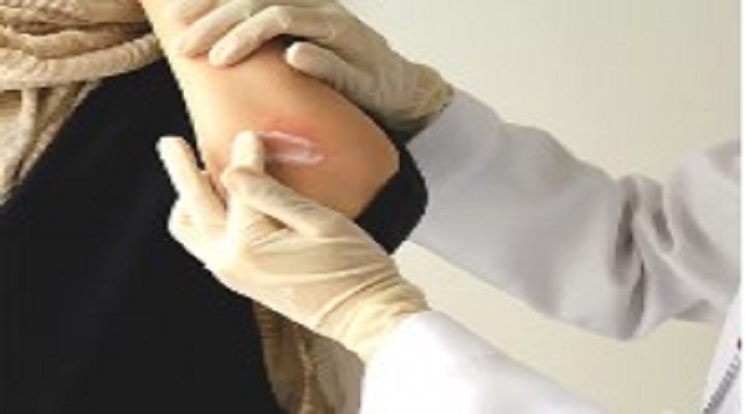
Understanding Psoriasis: Origins and Development
Psoriasis is a chronic skin disorder characterized by patches of itchy, scaly skin, often accompanied by inflammation and redness. Commonly affected areas include the scalp, knees, elbows, hands, and feet.
In the United States, it’s estimated that approximately 7.4 million individuals were affected by psoriasis as of 2013, as per a specific study.
This condition stems from an autoimmune reaction where the immune system erroneously assaults new skin cells, perceiving them as threats. This relentless attack prompts an accelerated production of skin cells beneath the skin’s surface.
As these newly produced cells ascend to the top layer, they displace the already-present skin cells, leading to the characteristic symptoms of psoriasis such as scaling, itching, and inflammation.
Genetic factors are believed to play a consequential role in the onset of psoriasis. The ensuing discussion delves deeper into the genetic contributions to the manifestation of this skin ailment.
Exploring the Genetic Connection to Psoriasis: What We Know So Far
Is there a potential connection between genetics and psoriasis? According to data from the National Psoriasis Foundation (NPF), the onset of psoriasis typically occurs between ages 15 and 35, although it can manifest at any age. In fact, approximately 20,000 children under 10 are diagnosed with psoriasis annually.
While psoriasis can develop in individuals with no family history of the condition, having a relative with psoriasis increases one’s risk. The likelihood of inheriting psoriasis is 10% if one parent is affected, and rises to 50% if both parents have the condition. Notably, one-third of individuals with psoriasis have a family member who also suffers from the disease.
Researchers investigating the genetic factors of psoriasis initially theorized that the immune system plays a role in the onset of the condition. Studies of psoriatic skin have revealed an abundance of immune cells producing inflammatory molecules called cytokines. Additionally, psoriatic skin exhibits specific gene mutations, known as alleles, which were once believed to be mainly responsible for the familial transmission of psoriasis. However, the attachment of the disease to the presence of a particular allele, HLA-Cw6, has since been deemed insufficient to cause psoriasis. Current research indicates that further investigation is necessary to fully comprehend the link between HLA-Cw6 and the disease.
Advancements in research techniques have identified around 25 regions within human genetic material (the genome) that may be connected with psoriasis. Consequently, genetic studies now offer an estimate of an individual’s risk for developing psoriasis. However, the precise relationship between the psoriasis-associated genes and the condition remains obscure.
Psoriasis entails a complex interplay between the immune system and skin, which complicates the distinction between cause and effect. Although recent genetic discoveries have shed light on important aspects of the disease, the exact triggers of psoriasis outbreaks and the specific manner of inheritance from parent to offspring are still not completely clear.
Uncovering Additional Contributing Factors to Psoriasis
The journey of psoriasis often navigates through unpredictable cycles of flare-ups and remissions. Statistically, around 30% of individuals with psoriasis also endure psoriatic arthritis, a condition echoing the symptoms of arthritis.
The triggering of a psoriasis episode or an intensification can often be attributed to environmental catalysts including:
- Mental stress
- Climates that are cold and lack moisture
- Infections such as HIV
- Certain medications encompassing lithium, beta-blockers, and anti-malaria drugs
- Cessation of corticosteroid use
Furthermore, trauma or injuries to the skin often prelude the emergence of a psoriasis outbreak. Infections, particularly streptococcal pharyngitis in the younger demographic, have been recognized as potential sparks for the onset of psoriasis, as per insights from the National Psoriasis Foundation.
Concurrently, a gamut of diseases tend to exhibit an increased prevalence amongst those diagnosed with psoriasis compared to the general populace. An investigation involving women with psoriasis revealed that approximately 10% also grappled with an inflammatory bowel disease, such as Crohn’s disease or ulcerative colitis.
Those battling psoriasis are observed to have a heightened incidence of the following conditions:
- Lymphoma
- Cardiovascular disease
- Obesity
- Type 2 diabetes
- Metabolic syndrome
- Depression and susceptibility to suicide
- Higher tendencies towards alcohol consumption
- Increased smoking rates
These associations underpin the multifaceted nature of psoriasis and its reach beyond the skin, impacting overall health and well-being.
Can gene therapy treat psoriasis and traditional treatments for psoriasis?
Gene therapy is not yet a viable treatment option for psoriasis, yet strides in genetic research are illuminating the complex nature of the disease. One notable breakthrough involves the identification of a rare gene mutation known as CARD14, which when coupled with an environmental factor, like an infection, can result in plaque psoriasis, the most prevalent variant of the condition. The discovery of the CARD14 mutation notably links it to psoriasis, especially since researchers have found its presence in extensive family lineages experiencing high incidences of plaque psoriasis and psoriatic arthritis.
This is just one example among several recent advances in genetic understanding that bring us closer to the potential future where gene therapy might offer relief to individuals with psoriasis or psoriatic arthritis. In terms of current treatment methodologies, for those affected by mild to moderate psoriasis, dermatologists often prescribe topical treatments, such as:
- Anthralin
- Coal tar
- Salicylic acid
- Tazarotene
- Corticosteroids
- Vitamin D analogues
For more severe conditions, physicians may suggest phototherapy alongside advanced systemic or biologic therapies, which may be administered orally or through injection, to manage the symptoms more effectively.

